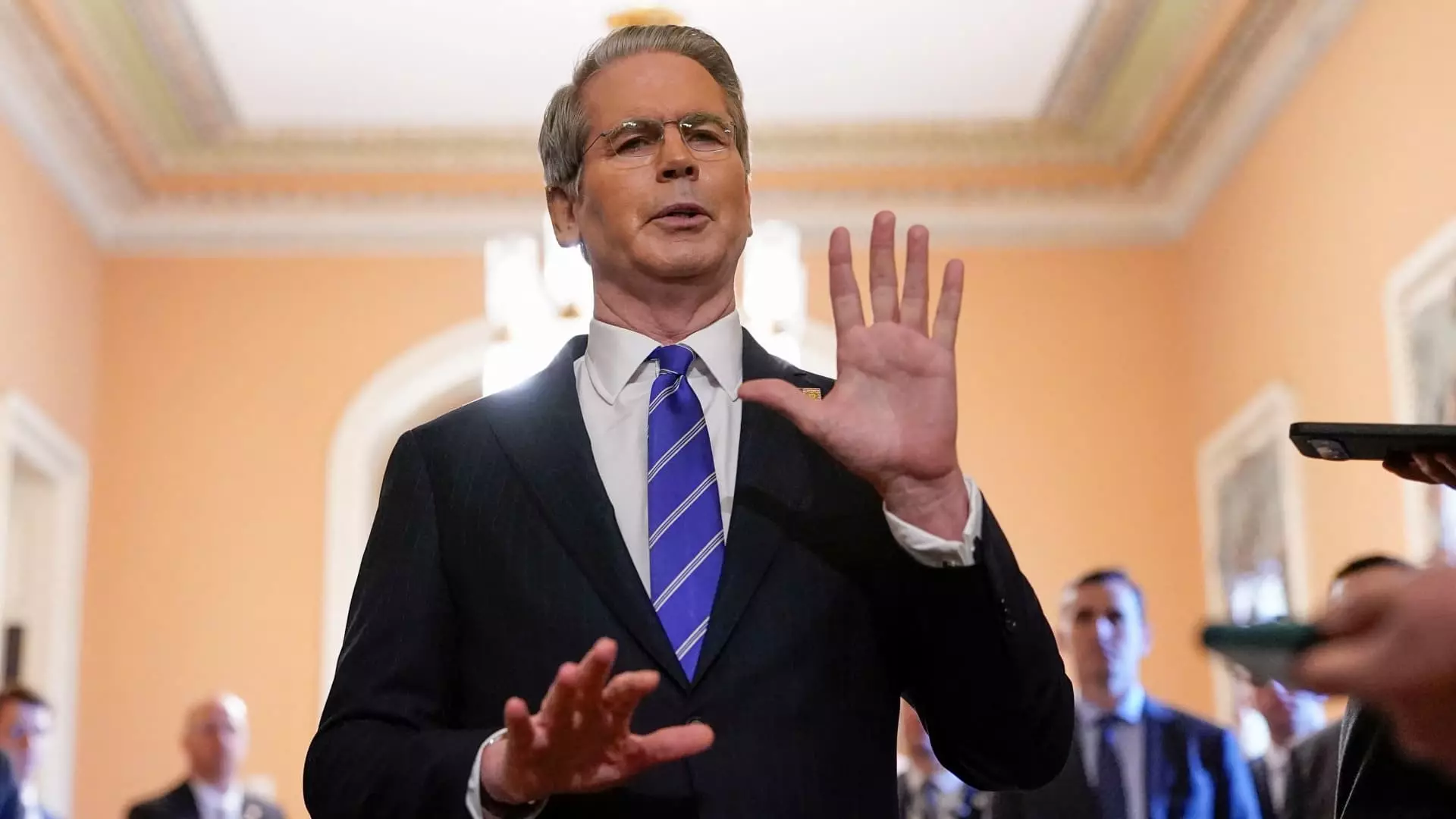The recent declarations by Treasury Secretary Scott Bessent expose a troubling pattern of American tariff strategy—one that oscillates between brinkmanship and vague promises of impending deals. At its core, this approach reflects a dangerous gamble that risks destabilizing global markets and undermining long-term economic cooperation. Rather than fostering genuine diplomacy, these aggressive tariffs seem designed to apply pressure through uncertainty, creating a volatile environment where trading partners are forced into reactive positions. Such tactics ignore the complex, interdependent nature of emerging global supply chains, exposing the U.S. economy to unnecessary shocks.
Bessent’s statements reveal a willingness to revert tariff rates to their previous levels abruptly, depending solely on whether negotiations accelerate. This “swap of the deadline” strategy, while couched in language of flexibility, signals a hardline posture that treats international trade negotiations as zero-sum games rather than partnership endeavors. The notion that other nations can simply “choose” to accept higher tariffs without consideration for the fallout is naive, illuminating a lack of nuanced understanding of global economic functioning. This approach risks igniting retaliatory measures that could spiral into trade wars, ultimately hurting American consumers and producers alike.
The False Promise of Swift Deals Amid Rising Tensions
Despite the optimistic tone struck by Trump officials about imminent trade agreements, history has shown that such promises often remain unfulfilled, especially when driven by political posturing rather than genuine consensus. The White House’s intent to reintroduce tariffs on August 1—regardless of ongoing negotiations—sends a contradictory message that undermines mutual trust. The premature framing of this deadline as an unavoidable outcome fosters a climate of fear and speculation, which can distort market behavior and investment plans.
Furthermore, Bessent’s assertion that multiple “big announcements” may occur in the coming days appears more aspirational than certain. It hints at a strategic distraction from the tensions, possibly aimed at pacifying domestic audiences or distracting from broader economic vulnerabilities. Meanwhile, everyday Americans and small businesses are caught in the crossfire, uncertain if their costs will surge or if supply chains will be disrupted once tariffs are re-implemented. The administration’s reliance on a narrative of quick resolutions neglects the intricate realities of trade negotiations, which require patience, trust, and mutual respect—qualities sorely lacking in this high-stakes game of tariff chess.
The Center-Right Alternative: Stability Over Showmanship
From a centrist liberal perspective, the emphasis should lie on pragmatic diplomacy rather than reckless tariff escalation. Unilateral tariffs, especially when used as leverage, risk diminishing America’s credibility and economic stability. It is vital for the United States to prioritize building durable trade agreements rooted in fairness and mutual benefit, rather than leveraging threats that could backfire on global relationships.
Policy wise, embracing a balanced approach that promotes fair trade, protects domestic industries without resorting to protectionism, and encourages international cooperation would serve American interests more reliably than short-term victories. This approach recognizes that economic strength is best fortified not through aggressive posturing, but through consistent, transparent diplomatic efforts that uphold America’s reputation as a responsible global actor. The current brinkmanship strategy, driven by headline-grabbing deadlines and harsh tariffs, ultimately threatens the stability and prosperity we should seek to preserve.

